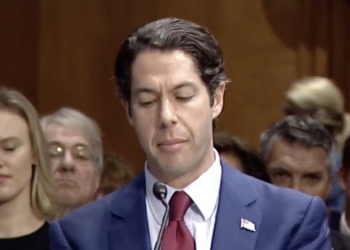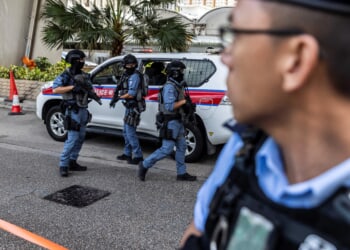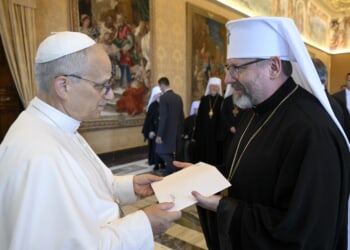
President Donald Trump announced Tuesday that his administration has helped secure a 60-day ceasefire agreement with Israel in its ongoing conflict with Hamas, though the final framework still requires approval from the terrorist organization.
The development comes just days before President Trump is scheduled to host Israeli Prime Minister Benjamin Netanyahu at the White House on Monday.
The meeting will focus on efforts to reach a lasting resolution to the nearly two-year-long war between Israel and Hamas.
Trump’s Sovereign Wealth Fund: What Could It Mean For Your Money?
“My Representatives had a long and productive meeting with the Israelis today on Gaza,” President Trump said in a statement Tuesday.
“Israel has agreed to the necessary conditions to finalize the 60 Day CEASEFIRE, during which time we will work with all parties to end the War.”
He added that Egypt and Qatar will assist in mediating a final agreement with Hamas.
Trump urged Hamas to accept the deal, warning of serious consequences if the offer is rejected. “I hope, for the good of the Middle East, that Hamas takes this Deal, because it will not get better — IT WILL ONLY GET WORSE,” he said.
Credit where credit is due. @realDonaldTrump has successfully resolved several serious conflicts around the world. pic.twitter.com/0EyHHy5Gfo
— Elon Musk (@elonmusk) July 2, 2025
This Could Be the Most Important Video Gun Owners Watch All Year
The Trump administration has prioritized diplomatic engagement in the region, following a recent ceasefire brokered between Israel and Iran after 12 days of military exchanges.
That conflict resulted in the deaths of multiple Iranian military leaders and nuclear scientists, along with U.S.-led strikes on Iranian nuclear facilities.
As part of the ceasefire efforts in the Gaza conflict, Israeli Minister for Strategic Affairs Ron Dermer traveled to Washington on Tuesday to hold meetings with senior members of the Trump administration.
Those meetings included discussions with Vice President J.D. Vance, Secretary of State Marco Rubio, and White House special envoy Steve Witkoff.
The potential ceasefire and other regional security matters, including Iran’s influence, were central to the discussions.
Prior attempts to establish a ceasefire between Israel and Hamas have failed.
In May, Witkoff put forward a 60-day ceasefire proposal that would have required Hamas to release 10 live hostages and return the remains of 18 deceased Israeli captives who were taken during the October 7, 2023 attack.
In return, Israel agreed to release 125 prisoners serving life sentences, 1,111 additional Palestinian detainees, and the remains of 180 deceased Palestinians.
While Israel accepted the terms, Hamas responded with revisions described by Witkoff as “totally unacceptable.”
As of June 2025, Israeli government and military sources estimate that 20 to 25 hostages are still alive in Gaza.
Of the 251 individuals originally abducted during the October 7 attacks, over half have since been released or rescued. At least 75 are confirmed dead.
The White House has emphasized that Monday’s meeting between President Trump and Prime Minister Netanyahu will focus not only on finalizing the ceasefire arrangement but also on advancing long-term regional security goals and strengthening U.S.-Israel cooperation.
Egypt and Qatar’s participation in the mediation process is seen as a key element in persuading Hamas to accept the current deal.
Administration officials have stated that they remain cautiously optimistic but are prepared to shift course if Hamas refuses to comply.
Further updates are expected following the Trump-Netanyahu meeting scheduled for July 8.







![Florida Man With Violent History Arrested for Choking a Cop [WATCH]](https://www.right2024.com/wp-content/uploads/2025/06/Eleven-Stabbed-in-Attack-at-Salem-Homeless-Shelter-Across-From-350x250.jpg)







